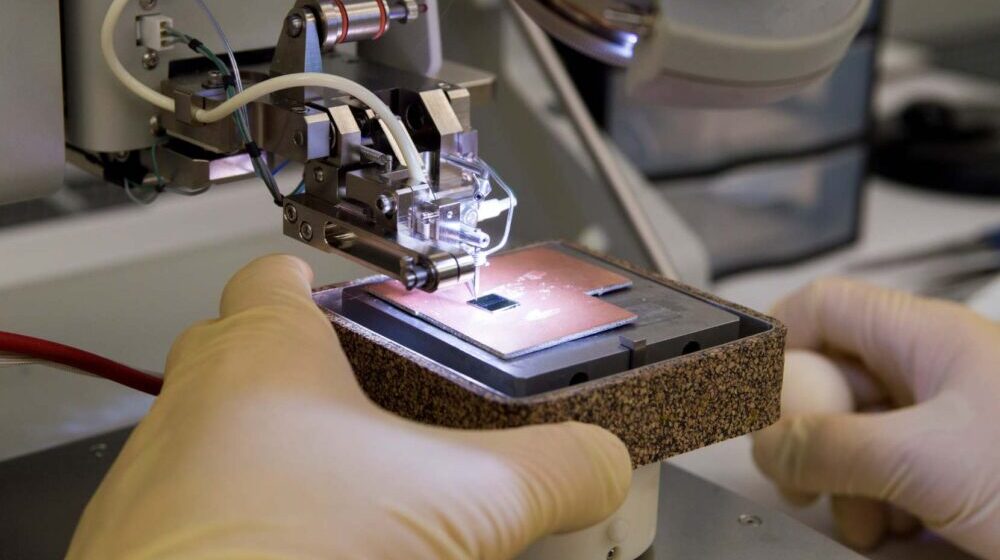While Nvidia seems to have devised a strategy to navigate the labyrinthine US export restrictions related to China, the situation takes a different turn for ASML, the Dutch company that plays a pivotal role in the AI chipmaking equipment landscape.
According to sources cited by Bloomberg, the Biden administration took proactive steps, initiating contact with ASML “weeks before” the looming January 1, 2024 export ban deadline. Their specific request to the Dutch firm was to suspend the delivery of certain pre-scheduled shipments of their deep ultraviolet lithography (DUV) machines to their Chinese clientele.
These DUV machines play a crucial role in the development of AI as well as other computer chips which China could potentially use to gain an upper hand against the US. This decision followed the disclosure that SMIC, a prominent Chinese semiconductor manufacturer, had employed ASML’s advanced technology in the production of Huawei’s cutting-edge flagship processor, the 7nm HiSilicon Kirin 9000S, used in its latest smartphones and laptops.
Apart from its production of DUV machines, ASML is a notable manufacturer of extreme ultraviolet lithography (EUV) machines, crucial for crafting advanced chips with node processes as fine as 5nm or even smaller. Major players like Apple and Qualcomm have been beneficiaries of ASML’s EUV technology.
It’s important to note that ASML has never been permitted to sell EUV equipment to China. However, the Dutch government had previously granted licenses to ASML for the shipment of DUV machines to China, with this privilege set to continue until the conclusion of 2023.
Recent developments took a turn when the US government, with National Security Adviser Jake Sullivan at the helm, reportedly engaged with Dutch authorities concerning ASML’s impending shipments to China. Consequently, Sullivan’s team was prompted to establish direct communication with ASML. This interaction resulted in the disruption of “shipments of a limited number of machines.”
China had managed to procure lithography machines from alternative sources, although these alternatives often employed less advanced techniques. Additionally, a collaborative effort between the United States, Japan, and the Netherlands had been underway, aimed at curbing China’s access to such critical equipment. In response, China accelerated its efforts to bolster its domestic silicon ecosystem, ultimately astounding the global tech community with the development of its indigenous 7nm mobile 5G chip.
Given these developments, it becomes apparent why the United States was keen to interrupt ASML’s final deliveries of DUV machines to China. However, the decision to do so before the agreed-upon deadline raises questions and is subject to scrutiny.
Recently, China has unveiled four Large Language Models (LLM) that have been approved by the country’s government. These models reportedly rival OpenAI’s flagship AI model, GPT 4, which makes the situation all the more alarming for the US government.






